What a concept
It was 50 years ago that the Beatles dropped the quasi-psychedelic bombshell that was Sgt. Pepper’s Lonely Hearts Club Bandon an unsuspecting world.
Over the five subsequent decades the Fab Four’s phantasmagorical flirtation with pop-rock theatrics has been critiqued, analyzed, dissected, and debated to such an extent that it would seem superfluous to attempt anything like that here.Let it suffice to note that every so often Rolling Stone magazine compiles an updated list of the top 100 (or 500, or 1000) albums of all time. In each ranking the No. 1 spot belongs to Sgt. Pepper.
So much for posterity. What was it like to hear the album when it was fresh, back when it was just another great pop record, before it became a towering monument to rock and roll artistry?
Let’s see what some of our fellow Wolverines have to say.
Fred LaBour, ’71
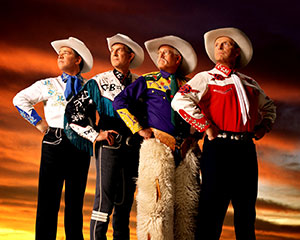
Riders in the Sky. (Image: ridersinthesky.com.)
Talk about a wake-up call! I first heard “A Day in the Life” on my tinny little clock radio the morning in 1967 that my sister and I were catching a train to Chicago, then Los Angeles, then a flight to Honolulu. We were going to Hawaii for the summer.
I was dumfounded, pole-axed, on fire with that sound—the crescendos, the lyrics, the other-worldly vocal of course, but more than that, the gorgeous changes following “I went into a dream…” All I knew was I had to hear that sound again. And again. We changed train stations in Chicago and the taxi had it on the radio. There it was again! I could not believe what I was hearing.
In Honolulu we met a guy with a record player and the album and that was it. I played it and played it and played it, blown to smithereens by the aural power, the lyrics, the charisma, the sense of “This is a report from the cultural front lines.” We dissected the cover, and devoured every scrap of information we could glean from magazines, newspapers, and the hippie rumor mill.
It defined that pot-smoking, hormone-fueled, war-hating summer for me and stood as the pre-eminent album in my estimation for a long time to come.
Bless you, lads and bless you, Sir George Martin–for the joy of the music, and the idea of personal possibility your work triggered in me.
— LaBour is best known as “Too Slim” with the Grammy-winning cowboy quartet, Riders in the Sky
David Was, ’75
At the tender age of 15, I found that Sgt. Pepperwas a mind-opener as well as a textbook example of what modern record-making could be. I distinctly remember poring over the lyrics like an English major excavating the dark corners of Finnegan’s Wake.
In retrospect, what I appreciate more than the hidden meaning of “Lucy in the Sky with Diamonds” is the playfulness and wit that John and Paul employed to expand the parameters of pop songwriting. Ambiguity was at the service of pleasure, not used as a means to obfuscate or appear “deep.” And let us all hail the true Fifth Beatle—George Martin—for his brilliant orchestrations and studio wizardry that changed the face of record production forever. MORE CALLIOPE!
— Was co-founded the band Was (Not Was). He writes and produces music for film and TV. He also writes for Newsweek and various other lifestyle publications.
Micki King, ’66
Great flashback to my days of training with Coach Kimball. Love this album. Back then I trained twice a day, flying in the sky off a diving board. “Lucy in the Sky with Diamonds” from Sgt. Pepper became MY song while I trained to win the gold. Of course, my “diamonds” came in 1972, five years later—but then, who’s counting, right!
— King is an Olympic gold medalist (women’s three-meter springboard, 1972).
Pat Oleszko, ’65-’70
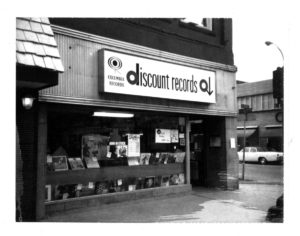
Iggy Pop worked at Discount Records, 300 S. State Street, at Liberty. (Image courtesy of Ann Arbor District Library.)
I believe I lined up outside of Discount Records early in the morning of the release with many others. With hot copy in hand, I pored over the visuals, compelling and simple, referential and bold. I still puzzle over the album cover. The music made everything, and nothing, clear, like any challenging work of art.
— Oleszko is a performance artist who incorporates absurdity, elaborate costumes, and props into diverse performances and events.
Steve Welkom, ’70
Back then every time the Beatles released an album it was an event. Everyone would rush out and buy it the first day it arrived in the stores, usually without having heard it. When Sgt. Peppercame out it was an even bigger deal because the Beatles had stopped touring and had spent six months and more money than anyone else ever had on this one. I was one of those who bought it unheard on the first day. I took it right home, opened it up, and put the needle down on track one and was immediately surprised by the sound. I played the whole record through, side one and then side two completely befuddled by it. It sounded so different in so many ways I couldn’t quite get my mind around it. I wasn’t sure I liked it; it was so different and strange.
However, it was the Beatles so I kept listening. After several spins certain things started to fall into place and I began to like some of the songs. After a couple weeks of listening to it nonstop I was completely in love with it. I enjoyed everything about it, including the fact that every time you listened you heard something else you hadn’t noticed before. It was a once-in-a-lifetime experience for me. I’ve been listening to popular music my whole life but this was a very wonderful and unique experience.
— Welkom is a musician (Long Island Sound, Floating Opera), co-founder of Another Planet Entertainment, and a former executive at Bill Graham Presents.
John Sinclair, ’64
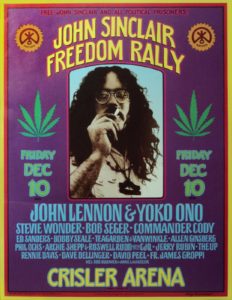 There were two LPs in the summer of 1967 that every hippie listened to without relent: Sgt. Pepperby the Beatles and Are You Experiencedby Jimi Hendrix. They were immediate proof that other people were taking acid as well. There weren’t that many hippies in Ann Arbor in 1967, but every one had their copy of Sgt. Pepper!
There were two LPs in the summer of 1967 that every hippie listened to without relent: Sgt. Pepperby the Beatles and Are You Experiencedby Jimi Hendrix. They were immediate proof that other people were taking acid as well. There weren’t that many hippies in Ann Arbor in 1967, but every one had their copy of Sgt. Pepper!
— Sinclair is a poet, performer, broadcaster, and journalist. He founded the White Panther Party and was a cause célèbre for being sentenced to 9 1/2-10 years in maximum-security prison for possession of marijuana. He is the subject of John Lennon’s 1971 song, “John Sinclair.”
Bob Franke, ’69
The Beatles were in an enviable position for creative people—they could do just about anything they wanted. They had their own bin at the record store, so they didn’t have to worry about which category they might fit into. I remember thinking at the time what a great thing it was that they decided to run with it, to create something new, something that was ours as a generation, something that aspired to both sonic and literary depth. We all pored over the lyrics to either find meaning in them or infuse them with our own.
Yet that cover, with its brass band nostalgia and its profusion of cultural icons, and Paul’s many references to the music hall tradition in his songs—it all shouted that they were part of a tradition. This is what you can do in a tradition when you open your eyes and listen to your heart.
— Franke is a singer-songwriter and teacher of songwriting.
Chip Davis, ’69
Sgt. Pepper’s Lonely Hearts Club Bandwas the first rock ‘n’ roll album that I really got into. I was a sophomore at U-M and in an apartment on Dewey Street. I still love the album today. It definitely influenced me later, after graduation.
— Davis founded Mannheim Steamroller. The band’s annual Mannheim Christmas Tour, at three decades and counting, is one of the longest consecutive-running tours in entertainment. Davis also is co-author of the 1975 hit song “Convoy.”
Andy Stein, ’70
I first heard Sgt. Pepperin the fall of 1967, lying on the floor of the “living room” of the Nakamura Co-op. I boarded there, and had a room in a neighboring house. I was a classical music nerd, majoring in violin performance, with interest in plenty of other kinds of music—playing Renaissance music on viola da gamba, bluegrass and old-time fiddle, and jazz bass. But I listened to music mostly (70 percent) with my head and my heart, not so much with my pelvis. There was plenty of rock and jazz playing on the hi-fi, including Coltrane, the Stones, Dylan, etc.
But when I heard Sgt. Pepper,of course all my interest was piqued. I could relate to the Baroque thing with the harpsichord and the trumpet. And it was so COMPLEX. So many things to listen to at once. Like in an orchestra! (Today I work as an arranger, besides my performing). I transcribed “Lucy in the Sky” (with all the details) and perhaps a few others, and played them on the piano.
— Stein is a Grammy Award-winning musician, arranger, and composer. He was a founding member of Commander Cody and His Lost Planet Airmen. He has worked with Paul McCartney, Bob Dylan, and Tony Bennett, among many others. In addition, he worked on “A Prairie Home Companion” for 22 years.
Larry Brilliant, ’61-’65, MPH ’78
I was a medical student in 1967 in Detroit. I had met an upperclassman when I was an undergraduate in Ann Arbor and he was in the pharmacy school and he had a Volkswagen convertible. It was a big deal that he could drive on campus. He had installed an eight-track cassette player and four speakers. Stereo! The technology was amazing to me with the four speakers all working together as we drove his car on campus with the top down.
We were listening to some music that I can’t recall and cruising slowly by the Michigan League—trying to attract girls, of course—when all of a sudden the Beatles started singing “Sgt. Pepper’s Lonely Hearts Club Band.” My friend pulled his Volkswagen into the parking lot closest to the League and turned up the speakers as loud as he could. Suddenly there was a crowd of a dozen girls surrounding the car and we had so much fun joking and listening and trying to understand what it was that had just happened.
— Brilliant is a physician, epidemiologist (World Health Organization), and philanthropist (Google.org, Skoll Foundation). He was ranked one of the world’s 100 most influential people by Time magazine in 2008.
Nancy Linn Pearl, ’65, MLS ’67
 This is so embarrassing, but I have to say that I was entirely out of the loop when it came to the Beatles. Fifty years ago I was deep into folk music, and spent all my time listening to the likes of Joan Baez, Joni Mitchell, and Judy Collins. I strayed from the folk scene as far as people like Jackson Browne, Gordon Lightfoot, and Dan Fogelberg. Lyrics have always been the most important aspect of music for me, and the Beatles were so much about the sound that I couldn’t relate to them. Now you know one of my darkest secrets.
This is so embarrassing, but I have to say that I was entirely out of the loop when it came to the Beatles. Fifty years ago I was deep into folk music, and spent all my time listening to the likes of Joan Baez, Joni Mitchell, and Judy Collins. I strayed from the folk scene as far as people like Jackson Browne, Gordon Lightfoot, and Dan Fogelberg. Lyrics have always been the most important aspect of music for me, and the Beatles were so much about the sound that I couldn’t relate to them. Now you know one of my darkest secrets.
— Pearl is a best-selling author (Book Lust) and was Library Journal’s librarian of the year in 2011.
John Tichy, ’66, MSME ’67, PhD ’70
I was a PhD student at U-M at the time and remember well when the album was released. The core of my music was (and still is) of the Chuck Berry “three chords and the truth” genre. Before Sgt. Pepper,the Beatles always sprinkled some of that music into their albums. Much of their music became more complex, but it was still possible to envision that your basic guitar-bass-and-drums combo could play it. Until Sgt. Pepper.Then the crushing thought hit me that I was too old (at 23!) and the hippie psychedelic world had passed me by. Hello to the rest of my life in a workplace cubicle.
Fortunately, I eventually did manage to rise above.
— Tichy was a founding member of Commander Cody and His Lost Planet Airmen. He is a professor of mechanical engineering at Rensselaer Polytechnic Institute.
Leslie Wayne, ’70
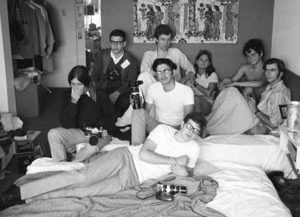
Leslie Wayne with the The Michigan Daily crew at the Democratic National Convention, Chicago, 1968. Wayne is in back, third from the left, next to a shirtless Daniel Okrent. (Image: Jay Cassidy Collection, U-M’s Bentley Historical Library.)
I remember what a shock it was when the Sgt. Pepperalbum came out. And I mean that in a good way. Prior to this, the Beatles performed in identical suits and sported identical mop top haircuts. All clean-cut. Now, they had reinvented themselves into something quite different: colorful, creative, and a whole different sound. Each Beatle was decked out in a crazy, shiny suit and the sound was a blend of the East and the West. Goodbye to the mop tops. Hello to groovy.
— Wayne worked for 30 years as a business reporter at The New York Times and now teaches at Columbia Journalism School and New York University.
Peter Benedek, ’70
I bought it the day it came out. I still have my vinyl copy, and later bought a CD and now (still) listen to it from the cloud (Spotify). It never occurred to me that someday I would be 64, and Abbey Roadremains my favorite one of their albums. P.S. It led to a lot of pot smoking!
— Benedek is founder and board member of the United Talent Agency.
Daniel Okrent, ’69
For me, Sgt. Pepperalways will invoke memories of that insane moment when two of my pals at the Michigan Daily,Fred LaBour and John Gray, put forth the “Paul Is Dead” theory. Fred and John were joking; the world took them seriously. The “evidence” included the fact that the flowers on the cover looked like the sort one would send to a funeral; that the image of Paul with his hand over his heart was some sort of arcane signal; and that the initials “OPD” on a patch on his left shoulder stood for “Officially Pronounced Dead.”
The publicity mania reached its apex when the story appeared on the cover of Lifemagazine, and when lawyer F. Lee Bailey conducted a televised “inquest.” (Actually, instead of “apex,” I should say “nadir.”) But whatever you may think, the guy who’s been impersonating McCartney in the half-century since has done a pretty good job of it.
— Okrent is an editor (Esquire, Life, New England Monthly) and author (Last Call: The Rise and Fall of Prohibition, Nine Innings: The Anatomy of Baseball) who began his writing career at The Michigan Daily. He also is a pioneer of fantasy baseball.
Aviva Kempner, ’69, MUP ’71
In the ’60s I was a Motown girl, so the British Invasion kind of passed me by. I grew up in Detroit less than a mile from the house of Smokey Robinson. I remember seeing little Michael Jackson perform with the Jackson 5 at the Michigan State Fair way before the world knew his great solo talents. For a long time I carried in my wallet an autograph from David Ruffin, inscribed, “Maybe someday you will be my girl.” And I’ve written in my will that “My Girl” will be sung at my funeral. But I did learn to appreciate the Beatles later on!
— Kempner is a documentary filmmaker (Rosenwald, The Life and Times of Hank Greenberg).
Ruth Reichl ’68, MA ’70
I was never into the Beatles—sorry, blasphemy I know—but they just seemed too nice to me. I was into the blues, Dylan, Janis, so Sgt. Pepperdidn’t rock my boat. Isn’t that the same year Dylan went electric? Now THAT was a big deal!
— Reichl is a chef, author (My Kitchen Year: 136 Recipes That Saved My Life, Tender at the Bone), and restaurant critic (Los Angeles Times, New York Times). She was the last editor at Gourmet magazine.
Gene Barkin, ’66-’69

The alley that led to the original Canterbury House. (Image courtesy of U-M’s Bentley Historical Library.)
I remember vividly the first time I heard Sgt. Pepper.I traveled to Europe for the summer trimester after my freshman year at U-M, bought a motorcycle, and spent those months as a vagabond. Toward the end of the trip I had started traveling with a high school friend I met up with in Spain, and two sisters we connected with on the ferry from Italy to Greece. We wound up on Mykonos (the Greek island, now a famous tourist destination, but in 1967 a sleepy fishing village that was just beginning to get visitors). Some enterprising folks had opened the island’s first nightclub, a discotheque, and they were blaring that incredible album at sonic-boom levels. If you have not heard that album played very, very loud, you’ve missed something. Personally, I never owned a sound system that could output that kind of sound level.
The record had a profound impact on me. I had been an acoustic guitar player (starting in the folk and country blues tradition) but after hearing that record I switched to electric guitar—and wound up, for good or for ill, in the pop music business myself. Many other artists subsequently released “concept” albums, but to my mind, no one has ever done it the way the Beatles did with Sgt. Pepper.
— Barkin was a janitor and later student manager at Ann Arbor’s Canterbury House during the folk music era. He is a musician and songwriter who played guitar with the Grass Roots. He is also a software developer and created a free app for musicians called Band-O-Rama.
David Weir, ’69
When I first heard the Sgt. Pepperalbum, I realized just how innovative and experimental the Beatles were willing to be. I loved it, and like many people, played it over and over.
— Weir is a journalist (Rolling Stone, Mother Jones, Wired), author (Circle of Poison, The Bhopal Syndrome), and co-founder, in 1977, of the Center for Investigative Reporting.
Michael Stern, ’68
Around the time Sgt. Pepperappeared, I was immersed in Chicago blues: Chess Records, Junior Wells, Magic Sam, etc. Concluding that the Beatles were pseudo-intellectual twits, I paid the music little mind. The pretense of Sgt. Pepperreinforced my prejudices of that time. Now that I am old and less judgmental, hearing a song from that album engenders pleasant nostalgia.
— Stern has co-authored more than 40 books about American food and popular culture and co-founded the website Roadfood.com.
Robert J. Shiller, ’67
I remember the album well. I thought I owned it and had it still, but I looked and didn’t find it. Maybe my graduate school roommate at MIT owned the Sgt. Pepperalbum, and I heard him play it. Sgt. Pepperappeared right around the time I graduated from U-M with a bachelor’s degree. I remember going on a trip to Chicago with a bunch of guys in my freshman year and the Beatles were on the radio, but that was before Pepper.My roommate as an undergrad at Michigan from 1965-66, Jeremy Raven, was more into bluegrass music, Bill Monroe and the like, and I remember being influenced by his tastes. My roommates all influenced me, and I think that’s part of the college experience
— Shiller is a behavioral economist, advocating institutional change and financing the good society. He is the author of 10 books, is a Sterling Professor at Yale, and holds the Nobel Prize in Economics.


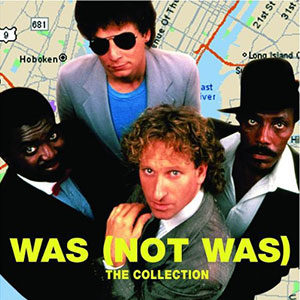
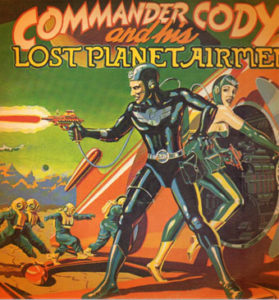

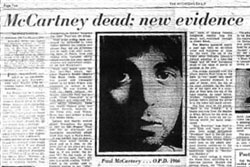
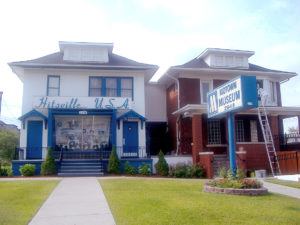
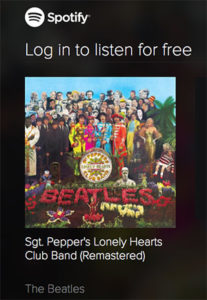

Robert Prouse - 1970
I remember the release of Sgt. Pepper well. A small group of us had the good fortune of having a small class with a very senior professor (Frank Huntley), and we were doing a close reading of The Wasteland by T.S. Eliot. We came nowhere near finishing in the semester, so we asked him if we could meet with him to continue the work. He invited us to his house, and his wife made cookies for us. So part way thru that semester, Sgt. Pepper was released and one of us brought the album to the “class”, and asked if we could go through the lyrics as we had been doing with Eliot. He enjoyed the album a lot!
Reply
Kathleen (Berg) Stahl - Class of '72, but graduated in 1980
I started at U-M in 1968, and will never forget moving into Stockwell to the sound of Janis Joplin. But the music of the Beatles was the soundtrack of my life for several decades. I remember 1964 and the Ed Sullivan show, and looking for a collar-less black jacket to wear to school the next day. Sgt. Pepper marked my brother’s 21st birthday, and Abbey Road was the music of my first serious romance. The CDs of the White Album were the first music to be played in my new car, just a few months ago! Going to put Sgt. Pepper in the CD player right now!
Reply
Marcia Dykstra - 1975
I remember when my brother came home from U-M for the summer with a copy of Sgt. Pepper. I was fascinated by it and it provided a wonderful, mystical soundtrack for the summer. Still one of my favorite Beatles’ albums. Hearing it always brings me back to that time.
Reply
Paul Kirby - 1967
Having been one of the first of the baby boomers, I was fortunate to experience, as a child, the emergence of rock ‘n roll (alias “rhythm and blues” and later, “rock music”) from post-war popular music. Such “hit tunes” as “Shrimp Boats,” and “Goodnight, Irene” seem so dated and naive now, but they topped the charts in the early 50’s. Then came “Fats” Domino, Elvis Presley, and then the total transformation of blues into the electronic rock music of which the Beatles were such a significant part. My interests were in classical and jazz, especially music with interesting mixed meters, like that of Stravinsky and Dave Brubeck. When the Beatles came out with “We Can Work it Out,” which involves an obvious meter change, I got interested. After that I bought every album they put out. But I think the fact that they had “street credibility” from their earlier rock songs like “I Want to Hold Your Hand” and “She Loves You” was what allowed them to revolutionize music with the Sgt. Pepper album. They were already so popular that people would be willing to listen to a much more complex album like Sgt. Pepper over and over (as described above) until they began to understand it. The Beatles’ subsequent albums were also so far above anything before or since in the popular music field. I once made an arrangement of “Golden Slumbers” and performed it with a junior high orchestra (and subsequently with a HS and elementary school orchestra), and it was extremely well received.
Reply
Dave Law - '67 LSA
December grad in my final semester when Sgt. Pepper came out (still have my original copy). Immersing myself in the album (“with a little help from my friends” at Phi Kappa Psi) was a surreal experience since I already had a January 1968 induction date into the U.S. Army. Let’s just say that the album became even more meaningful when I was able to listen to it “back in the world” after my combat tour concluded in Nov 1970.
Reply
Elaine Wilner - '66
Thank you for including Dan Okrent’s recollection of the “Paul Is Dead” phenomenon. That record and that story are inextricably linked in my mind. It refreshed my memory of the the names of the two writers who started it. I did remember that one of them–it was John Gray–was briefly famous (notorious?) around campus as “the guy who invented “Paul is dead.”
It may be putting too much weight on what was a really silly contretemps, but 1967 was when Kennedy assassination conspiracy theories started to really blossom. Today, conspiracy theories regularly crossover into the mainstream media. Now we call them fake news.
Were LaBour and Gray just on the cutting of edge of the zeitgeist?
Reply
Steve Rauworth - 1970
I had just graduated from high school in the spring of 1967, and that summer was a happy blur of freedom, both personally and with the cultural (especially musical) explosion and political turmoil that indicated American society was opening up. I was from small town, all white, conservative Illinois, but with pretty cool parents for that time and place, and like most of the people my age, was way ready for something different. I loved the Beatles and had heard some of the songs from Sgt. Pepper’s, but I hadn’t bought the album.
It wasn’t until that fall, when I went to Ann Arbor and started at UM, and decided one way I could reduce the immensity of knowing no one in the 35,000 students there was to join a fraternity, that I heard the entire album. This happened because my fellow pledges in that year’s class, after choosing and being chosen by Sigma Phi Epsilon, were at the frat house fairly often, though we couldn’t live there until the following year, participating in various sub-human activities, to prove we were worthy, a lot of which was really bizarre, but not life threatening.
This particular time, though, was unofficial and more casual, and for whatever reason, I, a couple other of my freshman brothers and some upperclassmen were sitting on the living room floor, specifically for the purpose of listening to Sgt. Pepper’s on a state of the art sound system, and smoking pot, me for the first time. Now that’s what I call an initiation! Not what you’d expect from a fraternity, but Ann Arbor was buzzing, one of the front lines of change, and the lines were blurred between institutions by the raging energy of youth. So my mind was blown, two ways from Sunday, by marijuana and some of the most amazing music ever. Great times.
I remember clearly the next year, while living in the house, one of my pledge class brothers placing two large speakers in his frat room window, cranking up the volume to 11 on his very powerful system, and blasting out the first song from an album called “Kick Out The Jams” by the MC 5 (MC standing for Motor City – Detroit), a self-avowed revolutionary rock band, already punk before punk was punk, one of whose members was Fred “Sonic” Smith, later to become the husband of Patti Smith. I’m pretty sure everyone within 10 blocks of Sigma Phi Epsilon heard “KICK OUT THE JAMS, MOTHERF****RS!” The floor and windows in the house were shaking, just like the whole country.
Reply